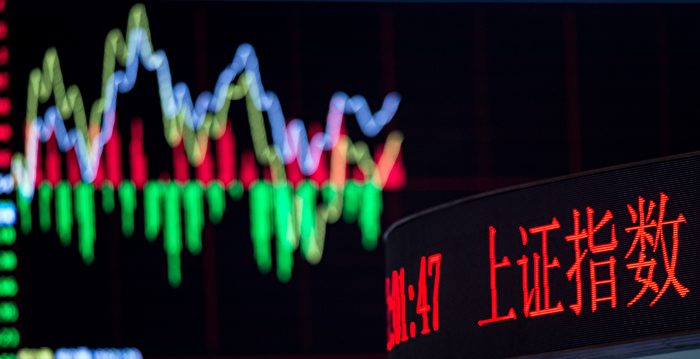[Epoch Times December 17, 2021](Epoch Times reporter Li Jing comprehensive report) In the early morning of December 16, Caixin.com reported that multiple channels confirmed that Wang Chaoyong, the actual controller of Chinese private equity investment institution Xinzhongli Company, was accused of Chaoyang has lost contact for two weeks after taking it away.
At noon on December 16, “Xin Zhongli” issued an emergency stock suspension announcement stating that according to media reports, the company’s actual controller Wang Chaoyong (real name Wang Chaoyong) had lost contact with the company, and the relevant situation has yet to be confirmed. According to the announcement, Xinzhongli will suspend trading from December 16, 2021, and is expected to resume trading before December 29, 2021.
Coincidentally, Wang Chaoyong’s WeChat circle of friends also stayed on November 29, two weeks ago, with the content: “Hope to have liquidity, we should use the Beijing Stock Exchange platform.”
In the Sina Weibo certified as “Chairman of Xinzhongli International Holdings Co., Ltd.”, Wang Chaoyong is a big V with 5.259 million followers. The last Weibo was published on October 19, 2021, and 20 articles were updated on that day. Weibo mainly contains news about awards, financing, and listing of companies invested by Xinzhongli.
Public information shows that Wang Chaoyong is a well-known figure in China’s venture capital circle. He was once known as the “Godfather of China’s venture capital” and “investment crocodile”.
Wang Chaoyong entered Tsinghua University at the age of 19 and sent to the United States to study abroad at the age of 20. As early as the mid-1980s, Wang Chaoyong worked as a senior manager of the investment department at JPMorgan Chase Bank in the United States. In the 1990s, he successively served as co-director of the President’s Office and vice president of Asia at Standard & Poor’s and Morgan Stanley. In June 1998, after returning to China, Wang Chaoyong was invited by the China Development Bank to serve as a senior consultant.
Wang Chaoyong founded Xinzhongli Capital Group in 1999 and is one of the earliest institutions engaged in venture capital and private equity investment in China. In October 2015, Xinzhongli was listed on the NEEQ. It is mainly controlled by Wang Chaoyong and his wife Li Yifei, with 63.59% of the shares, of which Wang Chaoyong holds 30.71%.
Xinzhongli has invested in more than 200 companies, including Aston Martin, Baidu, Sohu, Huayi Brothers, Juran Home, Meinian Health and other domestic and foreign listed companies.
Suspected of being interviewed by the authorities for emergency closure of private equity giants
It is worth noting that on September 7 this year, Tianxian Capital Management Co., Ltd. issued an announcement stating that the company decided to stop the fundraising work in stages. Tianyan Capital Management Co., Ltd. is a private equity giant, ranking second among 20 tens of billions of quantitative private equity, second only to Mingshi Investment.
According to a report by the Financial Associated Press at the time, there were market rumors that the regulatory authorities are currently conducting window guidance and on-site interviews for leading quantitative private placements such as Magic Square, Tianyan, and Jiu Kun, and may require them to reduce the frequency and limit the scale. In this regard, Tianyan Capital and Magic Square quantification denied it.
According to a report by China Fund News, well-known quantitative private equity funds such as Mingluo Investment and Xingkuo Investment have recently closed their market-neutral, 500-point increase and other strategic product lines, thanking customers behind closed doors.
Just before the announcement of the closure of well-known quantitative private equity such as Tianyan Capital and Evolutionary Assets, Xi Jinping announced the establishment of the Beijing Stock Exchange on September 2 to deepen the reform of the new third board and continue to support the innovative development of small and medium-sized enterprises. The next day, the central bank issued a report stating that it maintains the smooth operation of the stock, bond, and foreign exchange markets and strictly guards against the impact of external risks.
Current affairs commentator Chen Simin said in an article that for some time, the “disorderly expansion” of capital has been severely cracked down to pave the way for the establishment of the Beijing Stock Exchange. “Weak chickens” that lay eggs, not swarms of “iron eggs”.
In addition, he believes that for Xi Jinping in the new year, the so-called “external” risks are actually not abroad but within the country. Take the 2015 stock market crash as an example. A lot of information shows that foreign capital has become a scapegoat for air raids, and the real biggest short-holders are inseparable from the vested interest groups formed by the powerful.
Editor in charge: Sun Yun#
.
